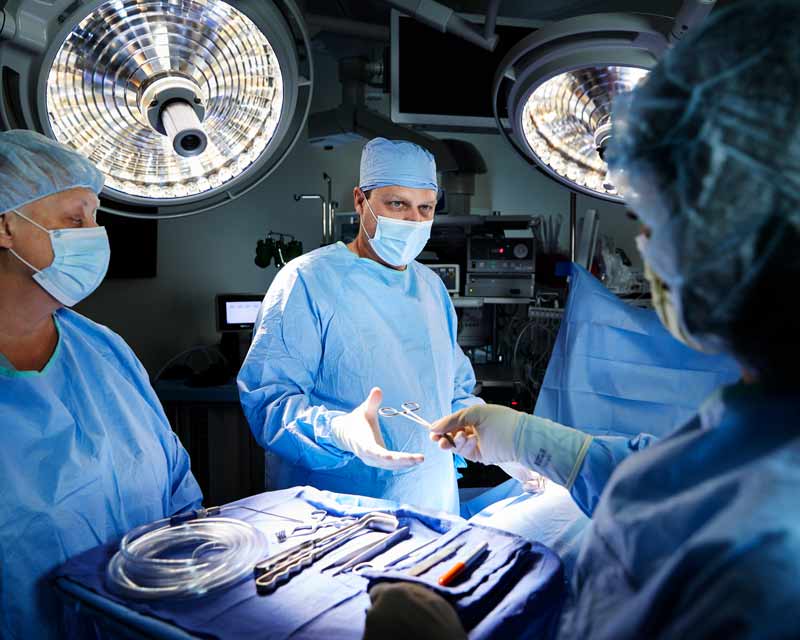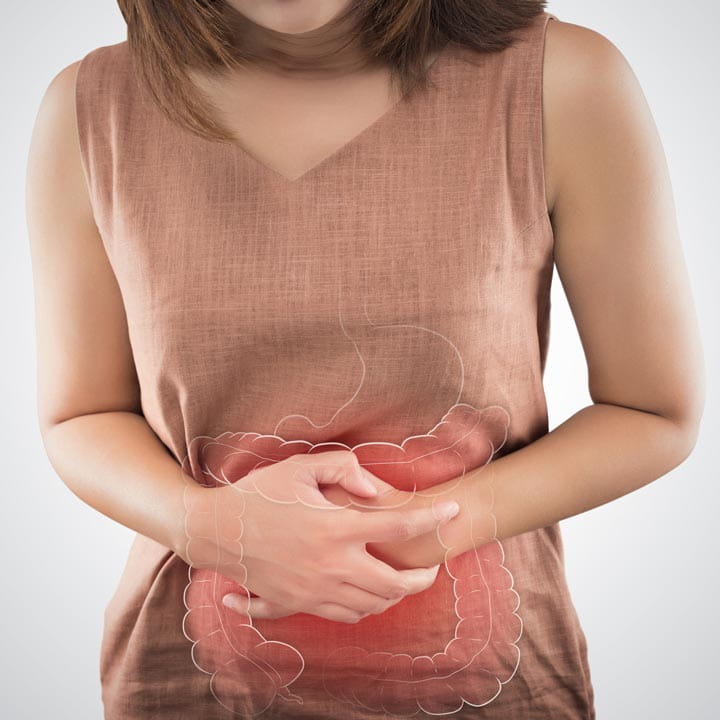
Comprehensive Esophageal Health Center opens with more convenient, streamlined care
 As one of the highest-volume inflammatory bowel disease (IBD) programs in the region, the IBD Center at The Ohio State University Wexner Medical Center offers diagnostic testing, medication therapy and innovative surgical techniques. We’ve also developed a pediatric-to-adult IBD transition program and a dedicated women’s health clinic to help with issues related to pregnancy, fertility, sexual health and menopause.
As one of the highest-volume inflammatory bowel disease (IBD) programs in the region, the IBD Center at The Ohio State University Wexner Medical Center offers diagnostic testing, medication therapy and innovative surgical techniques. We’ve also developed a pediatric-to-adult IBD transition program and a dedicated women’s health clinic to help with issues related to pregnancy, fertility, sexual health and menopause.
“Multidisciplinary care is important for complex diseases like ulcerative colitis and Crohn’s disease because they impact so many areas of a person’s life and overall health,” says Madalina Butnariu, MD, the center’s medical director. “As an academic medical center, we can also offer novel medications that may not be widely available because of our participation in multiple phase II and phase III clinical trials.”
IBD care here is coordinated across gastroenterologists, colorectal surgeons, rheumatologists, dermatologists, ophthalmologists, maternal fetal medicine specialists, pharmacists, dietitians, registered nurses and medical assistants.
“We’re dealing with lifelong diseases that really differ by individual, so there can’t be a cookie-cutter approach,” says the center’s surgical director Nimalan Jeganathan, MD. “There’s obviously a finite amount of intestine, so our goal is to proactively manage the disease and help people maintain the highest quality of life by controlling symptoms, minimizing complications, improving nutrition, reducing malabsorption and addressing common autoimmune issues that often appear with IBD.”
In addition to her responsibilities as the IBD Center’s medical director, Dr. Butnariu is also the director of women’s health in inflammatory bowel disease and the director of capsule endoscopy.
“From a diagnostic perspective, it’s crucial to really narrow the diagnosis so we can match therapies to each person’s goals,” she says.
This can be done using regular endoscopy, but the center also offers deep endoscopy and capsule endoscopy to examine areas not easily seen with more traditional technology.
“To move from a general diagnosis to a more targeted diagnosis like microscopic or diversion colitis or to pinpoint a rare condition like Behcet’s disease that can be confused with Crohn’s disease can be life-changing for a patient who’s been struggling with symptoms for years,” Dr. Butnariu says. “Once we identify exact patterns of inflammation, the severity and the specific parts of the digestive tract being affected, we can tailor medical therapies starting with the most conservative options first.”
As a clinician and researcher, Dr. Butnariu focuses on how these chronic illnesses impact women specifically.
“Along with other IBD complications, women’s symptoms can worsen menstrual issues, lead to iron-deficiency anemia and even impact fertility during flare-ups. That makes our center’s collaboration and care delivered by maternal fetal medicine specialists, nutritionists and others a real point of differentiation,” she says.
Although medical therapy is typically used as a first line of treatment, some patients may have elective surgery or require a procedure for urgent IBD complications. Once planned, minimally invasive laparoscopic and robotic procedures are used whenever possible. Some of the more common surgeries performed at Ohio State include bowel resection, stricturoplasty, anorectal procedures, pouch creation surgery and ostomy creation.
Ohio State’s IBD Center also offers Kono-S anastomosis for Crohn’s disease and complex redo surgery.
“Kono-S reduces the risk of endoscopic Crohn’s disease recurrence and need for further surgical procedures,” Dr. Jeganathan says. “Limiting the need for additional surgeries is an important part of care, as IBD patients often require multiple surgeries over the course of their lifetime.”
In addition to eliminating symptoms, surgery can help reduce lifetime treatment costs and minimize the stress and time associated with frequent health care appointments.
Having a dedicated IBD Center at Ohio State facilitates ongoing research as well, including active IBD clinical trials that give patients access to new ulcerative colitis treatments and medical therapies for patients with Crohn’s disease who’ve failed steroids, immunomodulators or biologic therapy.
Much of Dr. Butnariu’s research centers on capsule endoscopy and women’s health, with several topics progressing to clinical trials. Read one of her recent publications, "Pregnant women with immune medicated inflammatory diseases who discontinue biologics have higher rates of disease flare."
Dr. Jeganathan’s research interests focus on characterizing the various phenotypes of Crohn’s disease and reducing risk of anastomosis complications. He plans to build a tissue biobank of surgical resections, tissue and blood samples to better inform additional understanding of IBD variations by individual.
Each year, as many as 70,000 people are newly diagnosed with IBD, and it’s estimated that approximately 1.6 million Americans currently have a confirmed case of IBD, an increase of about 200,000 since 2011. To support physicians who have patients with IBD, Ohio State offers several referral and consultation options: